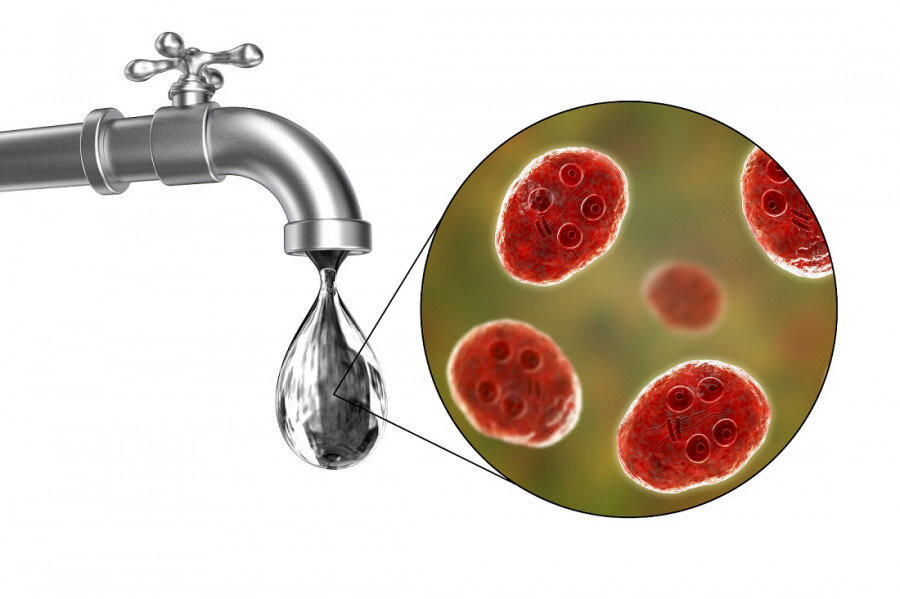Health
Faecal coliform found in drinking water at cholera-hit Lalitpur drugs rehab centre
After four persons from the rehab tested positive earlier this week. Officials urge proper purification, storage and safe handling of drinking water.
Arjun Poudel
Drinking water samples collected from the “Drugs-Free Society”, a Thaiba-based rehab hit by a cholera outbreak, have tested positive for faecal coliform.
Officials at the Health Office Lalitpur, have reported the presence of the deadly microbes in all water samples including those from the water utility and well water.
“Faecal coliform, a deadly microbe, has been detected in all water samples from the cholera-hit rehab,”said Shree Bhadra Sharma, a lab technician at the Health Office Lalitpur. “We have started chlorinating the water to tackle the contamination.”
Faecal coliform, a microscopic organism, lives in the intestines of warm-blooded animals or their faeces. The presence of faecal coliform means that the drinking water being used by locals of Thaiba is contaminated with sewage, according to doctors.
At least four people had tested positive for cholera that spread in the Thaiba-based rehab earlier this week.
Cholera is a highly infectious disease that causes severe diarrhoea and vomiting, which in turn results in dehydration and can lead to death within a few hours if left untreated. The World Health Organisation says cholera is a global threat to public health and an indicator of inequality and a lack of social development.
Health officials said that the Vibrio cholera 01 Ogawa serotype has been confirmed in the stool sample of an infected patient.
Of the four infected patients, one in serious condition was admitted to the intensive care unit of the Sukraraj Tropical and Infectious Disease Hospital in Teku, Kathmandu. Another patient, who was admitted in the same hospital, was discharged on Wednesday, but has not gone home because the rehab has closed and he has nowhere else to go.
Faecal coliform had also been detected in the study carried out on water samples collected from Godawari Municipality before the onset of monsoon.
As monsoon season is an epidemic season, in which most sources of drinking water get contaminated, presence of deadly microbes—E coli, faecal coliform in drinking water is not unusual during the monsoon season, health officials say. Even jar water, which is widely considered safer compared to water from other sources, gets contaminated during the monsoon season.
What concerns them much is the apathy of the responsible agencies in launching awareness drives about the risks and other preventive measures.
Most local authorities across the country halted testing of drinking water just before the start of monsoon citing budget constraints.
Doctors say this is not the first time that the water used by people in the Valley was found contaminated with potentially deadly microbes. What concerns them more is that water quality has not improved significantly.
“Consumption of water contaminated with human faeces causes diarrheal infections,” said Dr Yuba Nidhi Basaula, director at Sukraraj Tropical and Infectious Disease Hospital. “Whatever the source, one must ensure that water is safe before drinking.”
According to Basaula, the number of diarrheal cases has started rising in the hospital, and contaminated water and food are the main culprits. He said there are chances of outbreaks of diarrheal infections in multiple places where water from contaminated sources is being distributed.
“Around six diarrheal patients seek treatment in our hospital every day,” said Basaula. “One must be careful about the quality of food and water before consumption.”
Doctors say consumption of contaminated water not only causes diarrheal infections and deadly cholera but also increases the chances of contracting dysentery, typhoid, and hepatitis A and E.
Initiating awareness drives and ensuring safe drinking water are the only ways to save people from water-borne diseases, according to them.
A combination of careful surveys, provision of safe drinking water, good sanitation and hygiene standards, social mobilisation and treatment are required to contain the spread of infection, they say.




 10.12°C Kathmandu
10.12°C Kathmandu















